Bomb hoaxes and undercover inspections: Changi Airport's police on the unpredictable nature of their job
Airport Police Division officers tell CNA about the unique responsibilities of policing in Changi Airport, and what changed during and after the pandemic border closures.
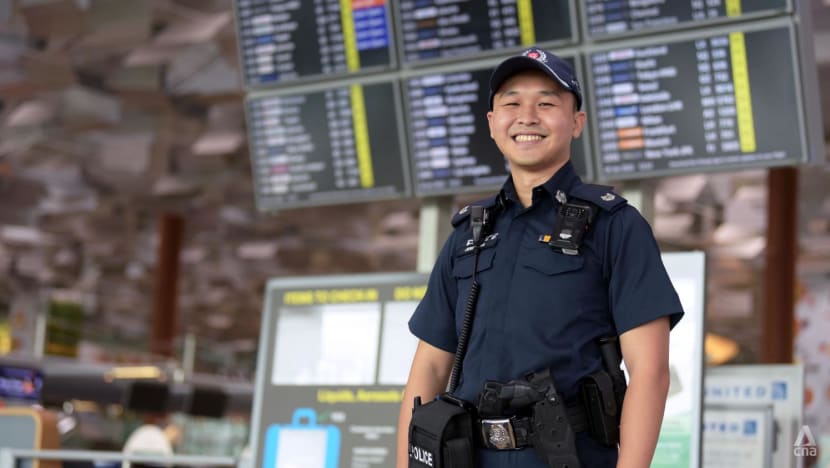
Assistant Superintendent of Police Jerry Tan. (Photo: CNA/Marcus Mark Ramos)
SINGAPORE: In November last year, Assistant Superintendent of Police (ASP) Jerry Tan found himself dealing with a bomb threat on an aircraft about to land at Changi Airport.
The information about the alleged bomb came from “an unknown source, so that reduced the credibility of it”, said the 33-year-old patrol team leader in the Airport Police Division.
Nevertheless, the police had to ensure that aviation security was not compromised. ASP Tan’s team was dispatched, and immediately started working with different airport agencies to rule out the possibility of a bomb on board.
Taking command of the situation, ASP Tan had no time for fear as he focused on making sure that his team performed the necessary procedures and kept various stakeholders informed.
“After the aircraft was parked, we had to manage the scene, coordinate the rescreening of passengers, baggage and cargo, search the aircraft for the bomb, as well as control the movement of people into the aircraft and conduct interviews with witnesses,” he said.
It took three to four hours in total to contain the situation and rule out the bomb threat, from the time that police received the tip-off before the plane’s arrival.
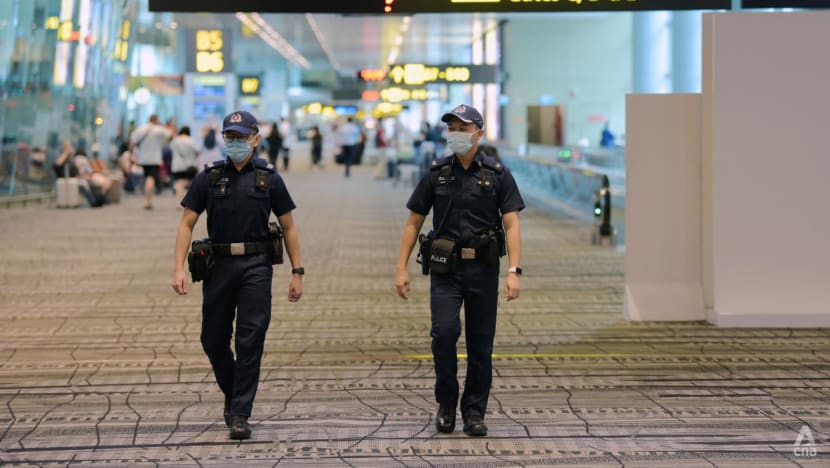
That bomb hoax remains one of the most memorable incidents in ASP Tan’s time with the Airport Police Division, which is responsible for the security of not just Changi Airport, but also Jewel, Seletar Airport, Changi Airfreight Centre and the Airport Logistics Park of Singapore.
Aside from maintaining law and order, the division performs the civil aviation security functions required of Singapore as a contracting state in the International Civil Aviation Organization (ICAO).
In an interview with CNA, officers from the Airport Police Division spoke about their unique responsibilities, how these differ from policing work in other terrains, and what changed during and after the border closures of the COVID-19 pandemic.
HAVING AN “AVIATION SECURITY MINDSET”
As a patrol team leader, ASP Tan leads a team of officers to conduct patrols, operations and security checks, as well as respond to any crime or aviation security incidents at the airport.
If the need arises, as it did during the bomb hoax, he must also assume command and control to manage incidents, in order to avoid catastrophic consequences and minimise disruption to airport operations.
On the ground, apart from looking out for crime and law and order issues, patrol officers are also trained to spot potential aviation security incidents.
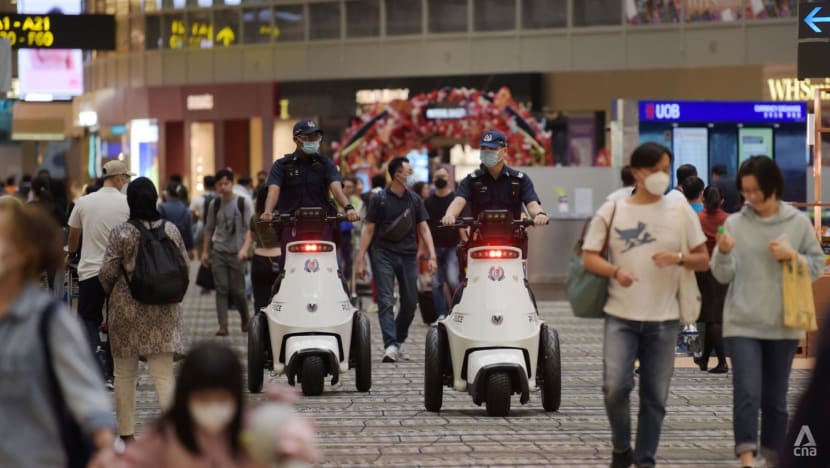
One example is when a bag with “telltale indicators” of possible explosives is left unattended, said ASP Tan. He must make an assessment as to whether the threat is real, and evacuate passengers and set up a cordon if so.
Patrol officers also conduct daily checks to flush out passengers who have overstayed in the transit area without valid reason, or who are engaged in suspicious activities or possess fraudulent travel documents.
These can range from passengers filming YouTube videos of their transit in Changi Airport, to fans who misuse boarding passes to meet celebrities in the transit area.
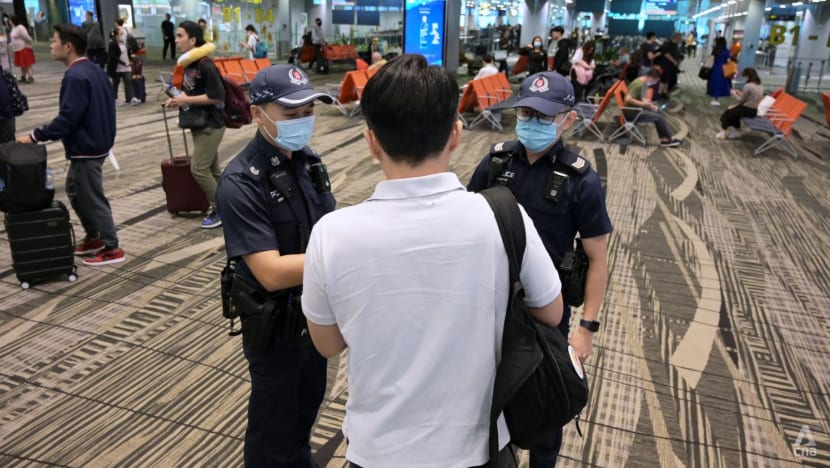
For ASP Tan, this work is very different from his previous postings doing investigations in Ang Mo Kio Division and at the Anti-Scam Centre.
When responding to incidents in police land divisions outside of the airport, officers seek to determine if there is any criminal act or intent.
But at the airport, they must go a step further to establish whether there is any intent to sabotage aviation security. This requires adopting an “aviation security mindset” when attending to all incidents, he said.
That can mean not taking a situation at face value. For instance, if there is a death on a flight, officers will try to determine if anyone is using the event to turn the crew’s attention away from other things that could be happening on the aircraft, said ASP Tan.
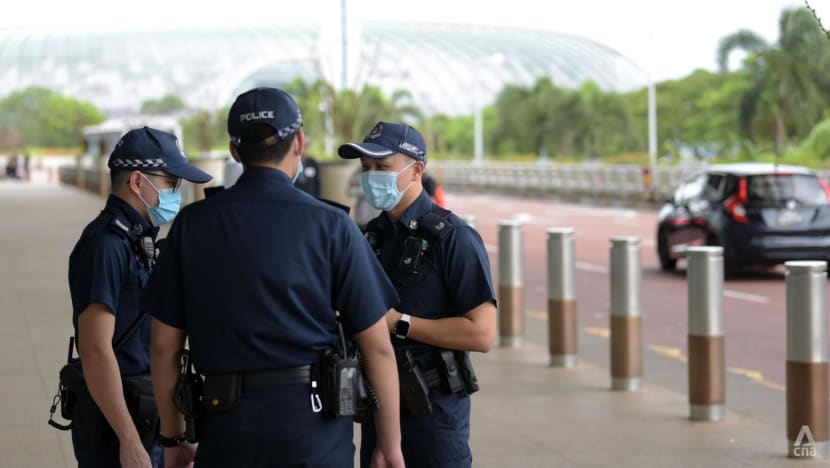
INSPECTING THE INSPECTORS
More than 600 entities – including aircraft operators, airlines, auxiliary police forces, transit hotels, retailers and cargo agents, among others – perform aviation security-related functions at Singapore’s airports.
For example, security screenings and control of access points to restricted premises like the transit area are outsourced to officers from security agencies like AETOS and Certis CISCO. Air service providers like SATS and dnata Singapore perform ground handling services like check-in.
The Airport Police Division is tasked with conducting quality control activities on these entities to ensure that security measures are in line with ICAO’s standards and practices.
For ASP Zafeera Ghulam Haider, 41, a team leader in the Security Regulatory Branch, this involves daily security exercises designed to check whether airport personnel is in compliance with security measures.
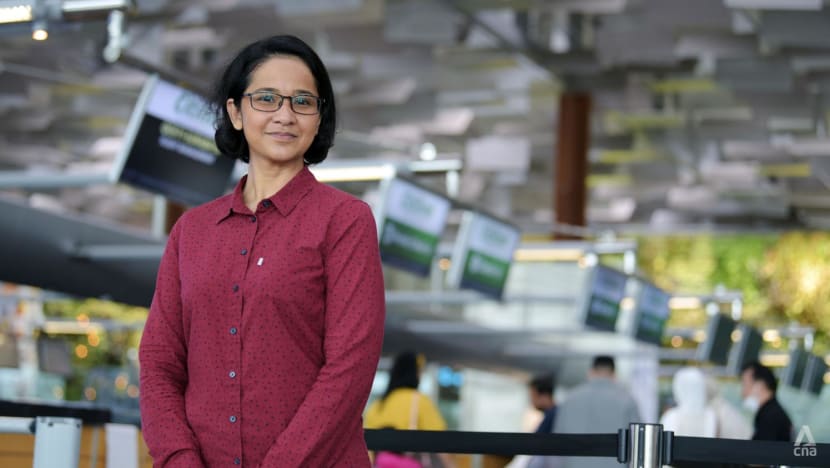
A day’s work could see her team of aviation security inspectors posing as passengers to test whether auxiliary police officers deployed at gate holding rooms screen their carry-on luggage properly.
If an auxiliary officer fails this undercover inspection, the breach will be reported to his or her employer, which will take the necessary disciplinary action.
ASP Zafeera recalled her first detection of a breach after joining the Airport Police Division last April. An auxiliary officer failed to detect a suspicious object planted by the aviation security inspector during an X-ray screening of carry-on luggage.
“When we went over, we told him that you have not done a proper screening, then he realised it, of course he (was) extremely emotionally affected,” she said.
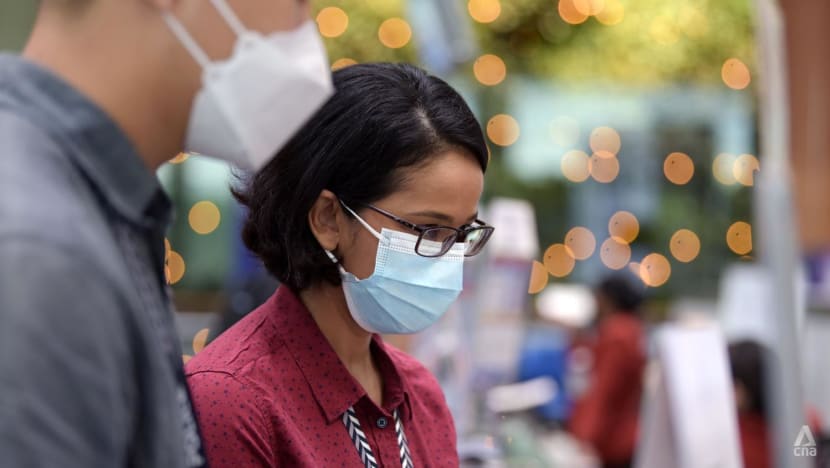
The auxiliary officer was crying and worried about the consequences of being reported to his employer, said ASP Zafeera. Her team had to balance giving him time and opportunity to explain himself, while remaining firm and assertive about the breach.
When breaches are detected, the Security Regulatory Branch must advise the officers involved on the consequences of such security lapses, given Changi Airport’s position as a potential terrorism target.
Happily, the auxiliary officer in question passed his subsequent security tests and even did “pretty well” in them, marking an improvement in his vigilance, said ASP Zafeera.
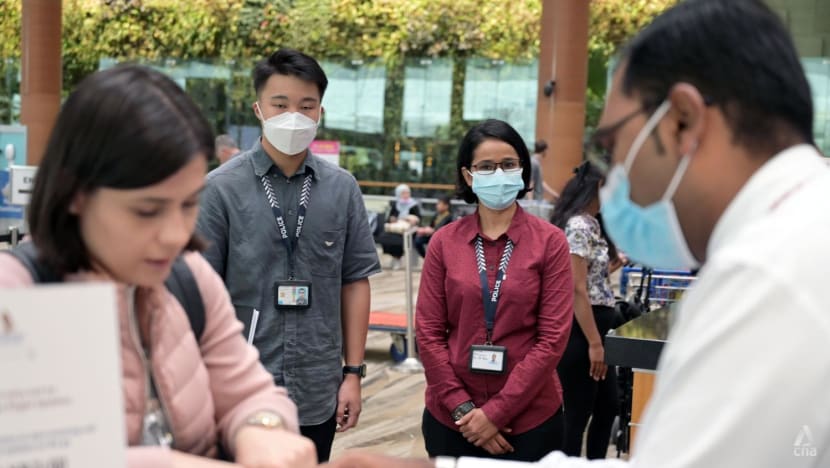
Aside from ensuring proper security screenings, aviation security inspectors also observe processes like the tagging of check-in luggage, the securing of access points between public and transit areas, and the closing of aircraft doors after all passengers have disembarked.
They also monitor details like the number of auxiliary officers deployed at screening stations and other security positions, to ensure adequate manning levels.
Aviation security inspectors are trained to analyse security breaches in various scenarios and work out the corrective actions to be taken, said ASP Zafeera.
This specialised skillset means they are also called upon for major events like the National Day Parade and Formula 1 Singapore Grand Prix, where they help to conduct security screening validation on auxiliary officers, she added.
STAYING VIGILANT THROUGH PANDEMIC “LULL”
Airport policing work is unpredictable and busy given passenger traffic at Changi Airport, which topped 65 million annually in the two years before the pandemic.
But for patrol team leader ASP Tan, who joined the Airport Police Division in the thick of Singapore’s “circuit breaker” in April 2020, he first had to navigate the “lull” brought on by the closure of international borders.
“Even though passenger operations (were) minimised, the security functions cannot be minimised,” said ASP Tan.
Air cargo operations were ongoing, and certain passenger flights still operated even though many countries, including Singapore, had closed borders to general travellers.
Global terror attacks on aircraft and airports have also always served as a reminder of the need for a robust aviation security regime in Singapore.
The need to continue safeguarding aviation security hence never let up. For ASP Tan’s team, this meant his officers would find themselves patrolling empty passenger terminals in full personal protective gear.
They would also observe that passengers on arriving flights kept to designated areas and moved smoothly from the aircraft, through screening stations, to buses that would take them to their quarantine facilities.
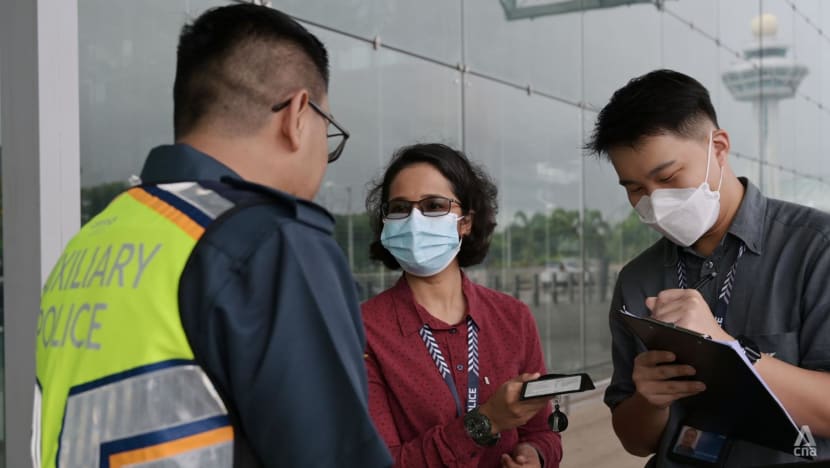
For the Security Regulatory Branch, the challenge was ensuring that airport personnel remained familiar with security functions, maintained vigilance and knew what they had to do once the lull was over.
That time finally came when Singapore reopened borders to all fully vaccinated travellers in April last year. Passenger traffic at Changi Airport rose to 27.6 million passengers in the year up to November 2022.
Dealing with last year's bomb scare in a bustling airport, ASP Tan felt “a bit of adrenaline” kick in. But he never felt particularly scared, he said, because Changi Airport has always given him a feeling of safety.

















